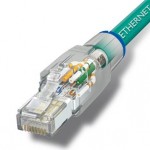Table of Equivalent Commands
Below is a table of equivalent commands for package management on both Ubuntu/Debian and Red Hat/Fedora systems.
|
Task |
Red Hat/Fedora |
Ubuntu |
|
Adding, Removing and Upgrading Packages |
||
|
Refresh list of available packages |
Yum refreshes each time it’s used |
apt-get update |
|
Install a package from a repository |
yum install package_name |
apt-get install package_name |
|
Install a package file |
yum install package.rpm |
dpkg –install package.deb |
|
Remove a package |
rpm -e package_name |
apt-get remove package_name |
|
Check for package upgrades |
yum check-update |
apt-get -s upgrade |
|
Upgrade packages |
yum update |
apt-get upgrade |
|
Upgrade the entire system |
yum upgrade |
apt-get dist-upgrade |
|
Package Information |
||
|
Get information about an available package |
yum search package_name |
apt-cache search package_name |
|
Show available packages |
yum list available |
apt-cache dumpavail |
|
List all installed packages |
yum list installed |
dpkg –list |
|
Get information about a package |
yum info package_name |
apt-cache show package_name |
|
Get information about an installed package |
rpm -qi package_name |
dpkg –status package_name |
|
List files in an installed package |
rpm -ql package_name |
dpkg –listfiles package_name |
|
List documentation files in an installed package |
rpm -qd package_name |
– |
|
List configuration files in an installed package |
rpm -qc package_name |
dpkg-query –show -f ‘${Conffiles}\n’package_name |
|
Show the packages a given package depends on |
rpm -qR package_name |
apt-cache depends |
|
Show other packages that depend on a |
rpm -q -whatrequires [args] |
apt-cache rdepends |
|
Package File Information |
||
|
Get information about a package file |
rpm -qpi package.rpm |
dpkg –info package.deb |
|
List files in a package file |
rpm -qpl package.rpm |
dpkg –contents package.deb |
|
List documentation files in a package file |
rpm -qpd package.rpm |
– |
|
List configuration files in a package file |
rpm -qpc package.rpm |
– |
|
Extract files in a package |
rpm2cpio package.rpm | cpio -vid |
dpkg-deb –extract package.deb dir-to-extract-to |
|
Find package that installed a file |
rpm -qf filename |
dpkg –search filename |
|
Find package that provides a particular file |
yum provides filename |
apt-file search filename |
|
Misc. Packaging System Tools |
||
|
Show stats about the package cache |
– |
apt-cache stats |
|
Verify all installed packages |
rpm -Va |
debsums |
|
Remove packages from the local cache directory |
yum clean packages |
apt-get clean |
|
Remove only obsolete packages from the local cache directory |
– |
apt-get autoclean |
|
Remove header files from the local cache directory |
yum clean headers |
apt-file purge |
|
General Packaging System Information |
||
|
Package file extension |
*.rpm |
*.deb |
|
Repository location configuration |
/etc/yum.conf |
/etc/apt/sources.list |
Some of the information in this table was derived (with permission) from APT and RPM Packager Lookup Tables.
Below is a table of example commands for managing services. The apache/httpd service is used as an example.
|
Task |
Red Hat / Fedora |
Ubuntu |
Ubuntu |
|
Starting/stopping services immediately |
service httpd start |
invoke-rc.d apache start |
service apache start |
|
Enabling a service at boot |
chkconfig httpd on |
update-rc.d apache defaults |
sysv-rc-conf apache on |
|
Disabling a service at boot |
chkconfig httpd off |
update-rc.d apache purge |
sysv-rc-conf apache off |
Note: Whereas Red Hat and Fedora servers boot into runlevel 3 by default, Ubuntu servers default to runlevel 2.
Note: The service and invoke-rc.d commands call init scripts to do the actual work. You can also start and stop services by doing e.g. /etc/init.d/apache start on Ubuntu, or /etc/init.d/httpd start on Red Hat/Fedora.
Source:
https://help.ubuntu.com/community/SwitchingToUbuntu/FromLinux/RedHatEnterpriseLinuxAndFedora

Recent Comments